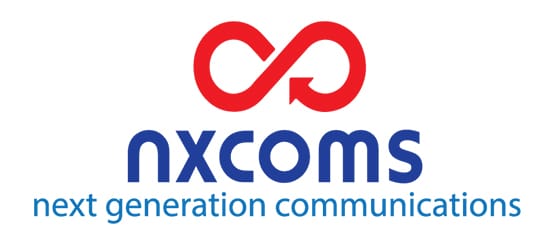
Feb 27, 2023 | Blog, Connectivity, Faster Britain, News
Is your business broadband slow? Is it letting you, your staff and your customers down? Can you make 3 whole TikTok videos in the time it takes for your internet pages to load?
Have you had to give an awkward ‘sorry’ to valued customers while you earnestly hit buttons in a desperate attempt to get your business back online? There’s nothing much worse, hey?
It makes you look bad. Your business seems unreliable and unprofessional. And that’s the last thing you need.
So why is your business broadband slow?
It’s probably relying on an outdated network – made from copper. And like all outdated systems, they have to hand on the baton of glory at the end of their race.
Here’s why the copper network has passed the finish line…
What Are Copper Cables?
For many, the internet has always just been there. Even if you can remember days pre-cable-connection, no doubt you too, find it hard to imagine life now without access to the world that lives through and thanks to, the internet.
Just imagine. No online shopping, no facetime with your favourites, no Googling a term you heard someone say (and pretended to know what they meant), no learning new things through YouTube or getting the latest goss from social media. Crazy, huh?
We’re all so used to firing up our laptops or scouring social media without much thought to how it all works. Who cares how it works?! Well nobody, until it doesn’t…
Copper cables make up a vast underground network that was originally set up to allow voice calls to connect via telephones. Laid over 100 years ago (yes, that old), copper cables brought us the first working telephones. They’ve been a triumph for sure.
Those exceptional but tired copper cables link your business to the nearest connection point – those green cabinets that sit unnoticed in your nearby road, that’s them! Who knew?!
The copper cables transmit data. All that communication for your business? Passed along as electrons and electrical pulses along copper wires that are more than a century old…no wonder they’re struggling with current information transmission!
Why Are They Making Your Business Broadband Slow?
Because of the way data is transferred along copper cables; as electrical pulses running along copper wires, the information can get a little, well, lost. The longer the span of copper is, the more likely it will render your business broadband slow and unfit for purpose.
So if your business happens to operate a long way from one of those green network cabinets, you probably struggle with the chaos of slow broadband.
With so many more of our business operations requiring a broadband connection, it’s no wonder copper cables simply can’t manage to keep up with the demand. They were designed for a different era, 1877 in fact – yeah that far back. Life looks pretty different these days, doesn’t it?
Since then, copper cables have had more leases of life than a Jamie Oliver cookbook, so they can continue to deliver broadband services for our homes and businesses for as long as they have. But it’s time for them to now hang up their coats and enjoy a well-deserved rest.
We salute you, copper cables!
The Impact Of Slow Internet
Let’s be honest, while copper cables will deservedly have a large section in our history books, their shortcomings can have a disastrous impact on your business operations and reputation.
Made a big sale at a weekend show, only for your card machines to fail? Expectant queues form, but sales are impossible. Wasted time and disappointed customers. Poor broadband can literally stop your salary.
Do you or your team work remotely? Then you rely on efficient broadband to stay connected and keep your business running smoothly. Without reliable service, not only is your business broadband slow; but you’re also isolated and simply unable to provide your service. You might as well be back in 1877…
Then your staff get fed up and disgruntled. They start to murmur expletives under their breath while waiting for pages to load. They become more and more dissatisfied with their working day. They can’t get on with the job they’re paid to do. The best of the bunch will care. Bad broadband could literally cost you your talented team.
Then there are your clients and customers. What does it look like to them when you can’t see or reply to emails? When you have to apologise profusely for slow service. Or those times you can’t even chat to them ‘cos your phone line is too rubbish? They mark you as unreliable, and inefficient, then run into the arms of your competitors. Damn.
Is Your Business Broadband Slow?
“What should I do?!” we hear you cry.
Thankfully, the solution is easy and simple – fibre optic broadband is waiting in the wings, ready to be your knight in shining glass fibre.
Plus the ‘Big Switch Off’ is happening in 2025 (the copper connection will be disconnected for good), so the sooner you leave it behind, the better. Beat the business backlog by booking an appointment with a trusted provider now.
Want to know more about the ‘Big Switch Off’ and what it means for you and your business? Check out our recent post with all the essential info you need here.
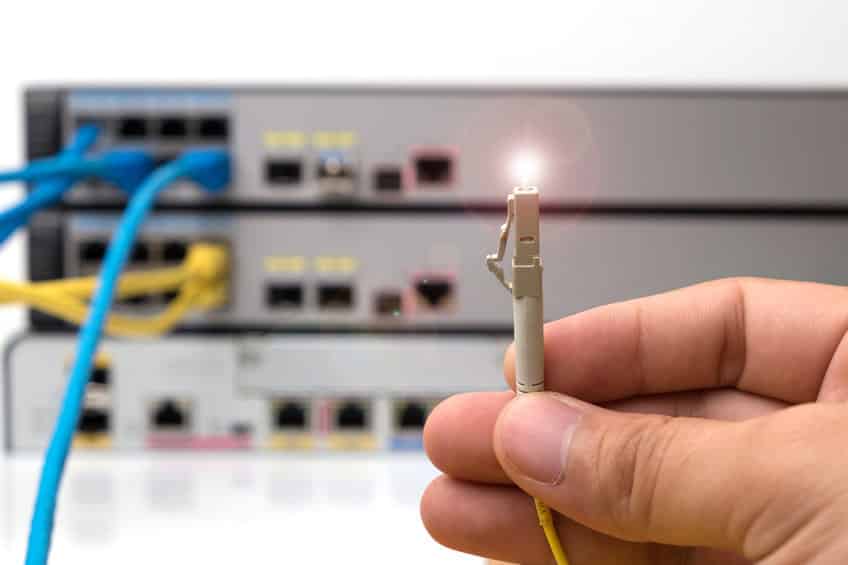
Feb 8, 2023 | Blog, Connectivity, Faster Britain, News
Do you know your broadband from your fibre optic? What does fibre optic really mean, and what’s it got to do with broadband anyway?
We hear the terms all the time, don’t we? Most of us have a vague understanding of what’s being said. We catch the gist. It’s enough to get us through. Just.
Most often, ‘fibre optic’ and ‘broadband’ are used interchangeably. They’re one and the same thing, aren’t they?
Not quite. If you’re still unsure about the comparison of fibre optic vs broadband, let’s clean up the confusion…
Fibre Optic Vs Broadband: What Is Broadband?
Broadband is defined as ‘the transmission of wide bandwidth data over a high-speed internet connection’.
So that’s cleared it all up for you, right?
Didn’t think so; let’s try again…
Broadband is your ability to access the internet from your devices. Okay, we’re getting a little closer.
Third time lucky?
Basically, broadband is the connection you have to the internet. Hurrah!
But there are different types of broadband, and that’s where the confusion creeps in. How your business connects to the internet can vary, from copper networks, satellite, wireless and fibre.
Fibre Optic Vs Broadband: What Is Fibre Optic?
With this in mind, the ‘fibre optic vs broadband’ comparison is really a false one.
So what’s all this mention of fibre optic? It’s the latest and greatest internet connection around. Thin, flexible fibres with a glass core are being laid to replace the outdated copper cable network, which happens to be more than a century old – yep — definitely time for that brilliant but worn-out system to rest.
In contrast, fibre optic cables transmit all your business communications and internet happenings via light signals along the glass fibre. Light travels fast, right? So too, does fibre optic broadband.
Not only are fibre optic cables faster, but they’re also more reliable and greener too. Impressive.
Tell you more? Oh, okay then…
Fibre Optic Vs Broadband: What’s The Difference?
Up until recently, broadband has connected your business to the internet via copper cables. A network of underground cables that were originally designed for telephone calls back in 1877. We hear you, that’s really old.
How does that even work? Believe it or not, all your business communications and connections move along the copper wires as electrical pulses. But the longer the cables are, the more likely your data will get tired and lost. The result? Poor, slow internet connection. Especially if you’re working in a beautiful, but out-in-the-sticks spot.
So what’s different about fibre optic cables? They’re so much snazzier. Built for the digital age. They’re made of glass core fibres only marginally thicker than a strand of hair, yet have impressive strength. Told you they were snazzy.
And the data transfer? Not by electrical pulses that go ‘poof’ when they have to travel too far, that’s for sure. Fibre optic cables use light. Yeah, it’s a whole Christmas display happening discreetly under our feet. Cool, hey?
And just to let fibre optic show off, let’s look at the stats. Copper cables are capable of getting broadband speeds up to 80Mbps. Fibre optic broadband? They boast broadband speeds up to 1000Mbps. Woah.
Mbps mean nothing to you? Doesn’t matter. We know you can appreciate the whopping difference in those numbers and how much faster full fibre optic broadband is compared to copper.
Hasn’t fibre optic been around for ages, you ask? What’s so special about this latest version? The truth is, the big brands have had you fooled, yep, sorry about that. What once was called ‘fibre optic broadband’ was really a marketing ploy…the ‘fibre optic’ never actually ran all the way to your home or business, just to the green cabinet on the street. Oooh, those devils!
Fibre Optic Vs Broadband: The Big Switch-Off
What’s that now? A switch-off?
That’s right. In 2025, copper cable internet will be turned off for good. We’re finally saying thank you and goodbye to the copper cable era. So in the battle of fibre optic vs broadband provided by copper, one of the contestants will soon be out of the ring altogether.
What does it mean for you and your business? It’s a big deal. That’s why we’re telling you about it. And we’re gonna keep mentioning it.
If your business internet connection happens via copper cables (if you’re not on fibre, this is you), come 2025, your business will have to operate without internet.
Don’t fancy going back to business operations of the 1970s? What not up for, cash-only, clunky machines and only snail mail or leaflet dropping to let people know you exist? Impossible to carry on, you wail? Then you’d better hop to it and sort out an alternative way to keep your biz blooming.
To keep you on track with the ‘fibre optic vs broadband’ showdown, what’s the difference? All fibre optic is broadband, but not all broadband is full fibre optic. Broadband is your internet connection. Fibre optic is a (superior) type of broadband.
If your business isn’t yet connected with full fibre optic broadband, then it probably should be.
Want to know more about why your business broadband is so bad and how to fix it? Check out our recent post with all the info you need right here.

Jan 23, 2023 | Blog, Connectivity, Data, News
How important is the internet to your business? Pretty essential, probably. In fact, internet access is considered by many to be a human right – so much of our lives are conducted online, that without access to the web, things tend to grind to a halt.
So, what if, in two years’ time, your internet access was cut? No emails. No websites. No banking. No accounts. No Zoom meetings.
It’d be pretty disastrous, right?
Well, that may be a reality for businesses that don’t pull their finger out and make the switch from copper to fibre optic. Not sure what we’re talking about? Read on to see if you should be worried…
What Copper Are We Talking About?
Well, it’s not the brown coins that are soon to be re-issued with the new King’s likeness on them. We’re talking about the cables that are used to carry your internet.
Currently, many buildings throughout the UK rely on a cable system laid over 100 years ago, and like most things that age, it’s struggling to keep up with modern demand.
The original copper cable network was designed for the telephone network and did a marvellous job. But, as innovation has snowballed and our expectations of the network have increased, copper cables just aren’t up to the task anymore. So, the lines are being retired – and if they were a person, we think they’d be getting a golden handshake and a Rolex for all the years of hard work and service.
Time to make space for the new kid in town…
Fibre Optic: What’s The Fuss About?
So, with copper cable enjoying retirement, we need something that will deliver the super fast broadband we have come to expect (can you imagine going back to dial-up now?!). That’s where fibre optic cable comes in in all its glassy glory. These fine fibres have a glass core that light signals travel along – and without getting into the science lesson – it’s incredibly fast, reliable and more economical to run.
What’s The Big Switch Off?
It sounds super fun, doesn’t it? Like a reverse New Year’s Eve.
Except, it’ll be fairly destructive to your business if you haven’t prepared for it. The big switch off is more like a big switch over. As we wave goodbye to the copper network, the fibre-optic network hums into life so if you haven’t made the move over in your home or business, you’re going to be offline for a while.
And as much as we like to imagine a giant lever being pulled to stop the copper cables, it won’t be as dramatic as that. The change is actually going to be done in phases, with Openreach working to have the switch completed by the end of 2025.
How Will The Switch Off Affect Businesses?
Not that we think you’re selfish, but you probably want to know how this will affect you and your business, right? Well, here’s what you can expect.
Your broadband and phone lines will stop working
Assuming you don’t take action, your phone lines and broadband won’t work anymore, since they will be connected to a defunct network.
Tills and pay points won’t work
Ah – it gets worse! You won’t be able to process payments since most systems use the internet to function.
CCTV, alarm systems and access control disconnect
And you won’t have any security to support you either. Typically, these systems use your internet connection to run too.
It’s starting to sound like an apocalypse, isn’t it? Well, if you feel like you’re reliving the panic of midnight 1999 all over again (if you’re too young to remember the Y2k bug hysteria, you’re lucky.) – don’t.
You have plenty of time to plan how you’re going to manage the change. Plus, you have us on your team.
How To Avoid Disruption
A great man once said ‘Failing to plan is planning to fail’ and here’s where you take heed. We need to make a plan. Yes, we. You don’t have to stress about all the techy stuff because that’s what we’re for.
So, you ask, what’s the plan?
We’ll start by reviewing your technology and seeing what systems you have in place. There are things we can implement immediately that will not only protect you from the shutdown of the copper network but improve your workplace.
VoIP
Your phone will join its ancestor, the rotary dial, in the telephone history books and in its place will be a VoIP (voice over IP) system. This system works like a normal phone, but it uses your internet connection to send and receive the data so you can take your phone line anywhere you go.
What a blimmin’ life-saver if you’re ever in a pandemic and need your staff to work from home… In all seriousness, it has enabled teams to work remotely but still pick up calls from customers and colleagues. Calls are cheaper too, so it’s a really great first step in the switch.
Broadband
Your broadband keeps your business switched on. Even the most remote, rustic business likely uses the internet for something, even if it’s watching TikTok between customers. You need to know that your provider is ready for the change. In fact, you want them more than ready – you want a provider already thinking ahead to what’s next because you’ll always be prepared.
Should You Make The Switch?
If you like the feeling of impending doom and stress, then staying unprepared is fine. But if you prefer knowing that your business will seamlessly transition from an archaic system to a modern one, then starting to plan your change over is a good idea. Being an early adopter has its benefits too.
You’ll avoid the rush
2024 is going to be full of people clamouring to book engineers and appointments. And you know what high demand does to prices, right? Avoid the rush and risk of having to pay a premium by getting your workplace fibre optic ready sooner rather than later.
You’ll save £££
Like we mentioned, you can stop paying phone line rental fees as well as call costs. If you make a lot of calls or call overseas, then why wouldn’t you want to start saving money right away? You can even retain your phone number.
Faster connection
Faster internet will increase productivity. Downloads and uploads will take seconds, streaming will be uninterrupted and accessing the cloud is quicker – you’ll see how it impacts your team pretty easily.
Less disruption
Ever had your internet go down because of a fault on the line? Well, not with fibre optic. Maintaining fibre optic cables is far simpler so there will be fewer problems that result in your staff twiddling their thumbs while they wait for the connection to be restored.
Ready To Switch?
If you are ready to protect your business from the disruption that the big switch over may cause, get in touch. We already support businesses like yours with futureproof connectivity that delivers better speeds, reliability and range – join them and enjoy the slightly smug feeling of being ready ahead of time.
You can read more about the great copper switch off in our post here, and if you have any questions, we would love to answer them. You can call us on 0161 711 1100 or email fibre@nxcoms.co.uk
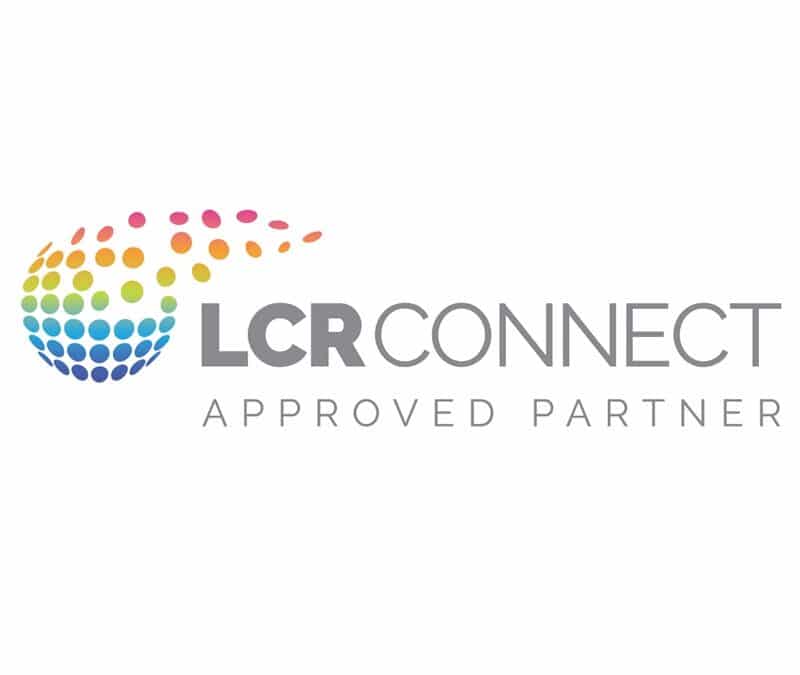
May 31, 2022 | Blog, Connectivity, LCR Connnect, News
Nxcoms is an approved partner of LCR Connect. That means we can offer you exclusive access to Liverpool City Region’s new 212km digital highway.
Spanning the six local authorities of Halton, Knowsley, Liverpool, Sefton, St Helen’s and Wirral, this new digital infrastructure is a local network. It’s 50% publicly-owned and built for local businesses.
Why LCR Connect for my business?
Choice: we’re an open access network, meaning you can access a range of business connectivity – from broadband to leased lines – allowing you to access and enhance IT and cloud services.
Uptime: because we’re a new network, we can switch you over, hassle free, with no downtime.
Speed: while some providers take months to install, we can have your business up and running on the network in days.
Bespoke: if one of the standard offerings doesn’t give you what you need, we can work with LCR Connect, with ‘commercial flexibility’ to work around your needs.
Personal: we’re in your region, so we know your patch (because it’s our patch too). We’re not your typical faceless, big corporation.
Why LCR Connect now?
As the UK looks to a copper switch off, and with more and more services becoming internet and cloud-based, the infrastructure that lies at the heart of business communications is being transformed.
Delivering Gigabit-capable speeds is becoming the norm, with ultrafast connectivity becomes a utility. The digital networks are enabling businesses of all sizes, allowing them to collaborate, support service and underpin the way we work and buy goods in the future.
What is LCR Connect?
LCR Connect is half-owned by the Liverpool City Region Combined Authority, in partnership with North West-based ITS Technology Group, who will lead the project, working alongside construction partner NGE, who are managing the build and roll-out of the network.
Experts estimate that with 100% full-fibre coverage across the City Region, building on this network, the economic boost could be worth up to £1bn, creating thousands of local job and training opportunities.
Want to know more?
Contact us on 0151 665 0880 or visit https://lcrconnect.online
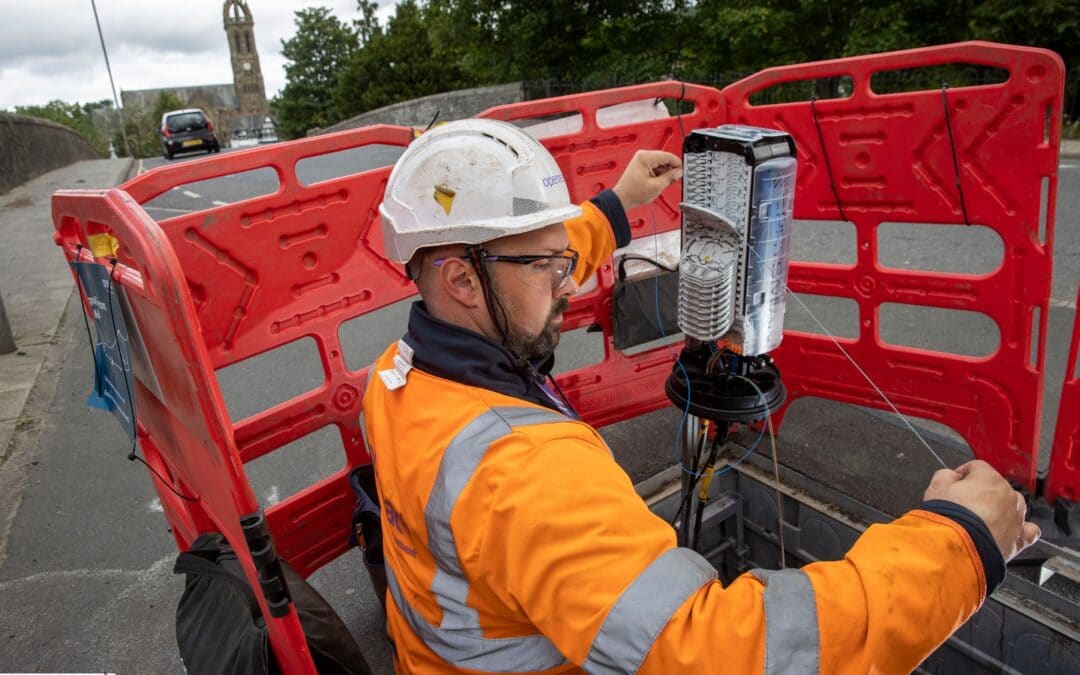
Feb 17, 2022 | Blog, Connectivity, News
Prepare for change
In the coming months and years, changes are happening in the world of telecoms to replace telephone lines as we know and love them.
This doesn’t mean we’re saying ‘see you later’ to your landline, but it does mean that traditional copper- based phone lines and broadband services are slowly being phased out, with a target for the full switch-off and replacement by 2025. In their place will be brand new fibre-optic cables, and although the target for the switch and replacement is a few years away, the changes are actually happening right now as you read this article.
For the sake of your business, it’s important you know what the changes are, and how they might affect your operations.
Hold the phones
You might not be aware of it – and you might not even care, to be honest – but up until now, your business has very likely used some kind of copper telephone line service (ISDN or Analogue PSTN) to make and receive calls. You’ve also likely relied on a copper-based broadband service to keep your operations alive and kicking online via ADSL or FTTC (often known as fibre broadband or superfast broadband).
The problem is, the use of copper is not the most reliable way to transmit data. The longer the cable, the worse the signal, for a start. In addition, if the copper comes into contact with heat or damp (welcome to the unpredictable great British weather),the more it suffers the risk of damage.
Makes a little more sense why you’ve likely spent times in the office swearing at the inexplicability of your slow-moving internet now, doesn’t it?
Listen up
Back in 2015, Openreach (in conjunction with those lovely folk at Ofcom) drew up a roadmap to transform this copper-based communication infrastructure and replace it with ultra-reliable and ultra- fast fibre-optic cable. Good news indeed, because if there is anything you want and need your internet to be, it’s fast and reliable.
In line with switching to fibre, many businesses have already started making some changes.
If that’s you – brilliant. If it’s not you – read on.
Make the call
Those who have been aware of the changes (every organisation should have an IT geek on the team) have begun their adaptation by moving their phone lines and internet access to new lP (Internet Protocol) based services. Voice over IP (VoIP) telephone systems are now becoming the standard way to communicate. Changing to a VoIP system will, as standard, increase the capability for your staff to work remotely and make and receive calls just as if they were in the office. Great news if there’s another lockdown (every cloud…).
If you make one call to better your business today, let it be to a provider who can set you up and start you off with VoIP. This is especially the case if you know that your phone line is more than 10 years old, just for info!
And what of the Internet?
Recently, Ofcom announced that 13.5 million homes and business premises (which has been the same thing for many of us since 2020) are now enabled for full fibre-optic broadband. But how do you know you’re ready to make this change right now? Most likely it will be because you have download speeds of 80Mbs or less. If you’re not sure this is the case, think about how long ago it was that you swore at your laptop.
The speed of download on offer with full fibre-optic cable can be up to 1Gbs – more than 10 times that of the old copper-based broadband services. More speed – more efficiency in your business.
Come away from the copper, people – and remember that it’s not just about your phones and computers. This stuff affects things like your card processing terminals, too. Why run the risk of losing out on somebody trying to pay you?
But seriously…
At nxcoms, we’re known for our approachability, and so we’ll often joke about the issues faced by businesses when it comes to their communications, but we’re professionals, too, so it’s only right that we give you the information you need. In this instance, if you’re sitting there and thinking you’ll make any required changes at some point in 2025 when you absolutely need to, please do think seriously about the reliability of additional services you may have, such a BT Redcare line for an alarm system or fire panel, or an emergency phone line that you may have installed somewhere such as in a lift.
An emergency really isn’t the time when you want to be finding out that your most fundamental of communication systems is not just ineffective, but a potential hazard, too.
What you need to do now
Much as we’d love to tell to sit back and relax whilst this all happens around you, that wouldn’t be the great advice we’ve come to be known for. If you haven’t already done so, put a plan in place to upgrade your phone system to VoIP. Worried about a disruption in service and the likelihood of losing your landline number in the process? Don’t be.
Good suppliers have been sorting this out for businesses for months and even years, now. Both service and existing numbers can be seamlessly transferred over for you.
The to do list doesn’t stop there. Next, check with your provider what kind of broadband line you currently have and ask whether an analogue PSTN line is required to run the service.
If this is the case, then it’s time to start thinking about a move to a full fibre-optic solution.
Wondering who to call when you need all of this sorting?
There’s a reason we wrote this article for you. Pick up the phone (if it works) and give us a call on 0161 711 1100 or email fibre@nxcoms.co.uk
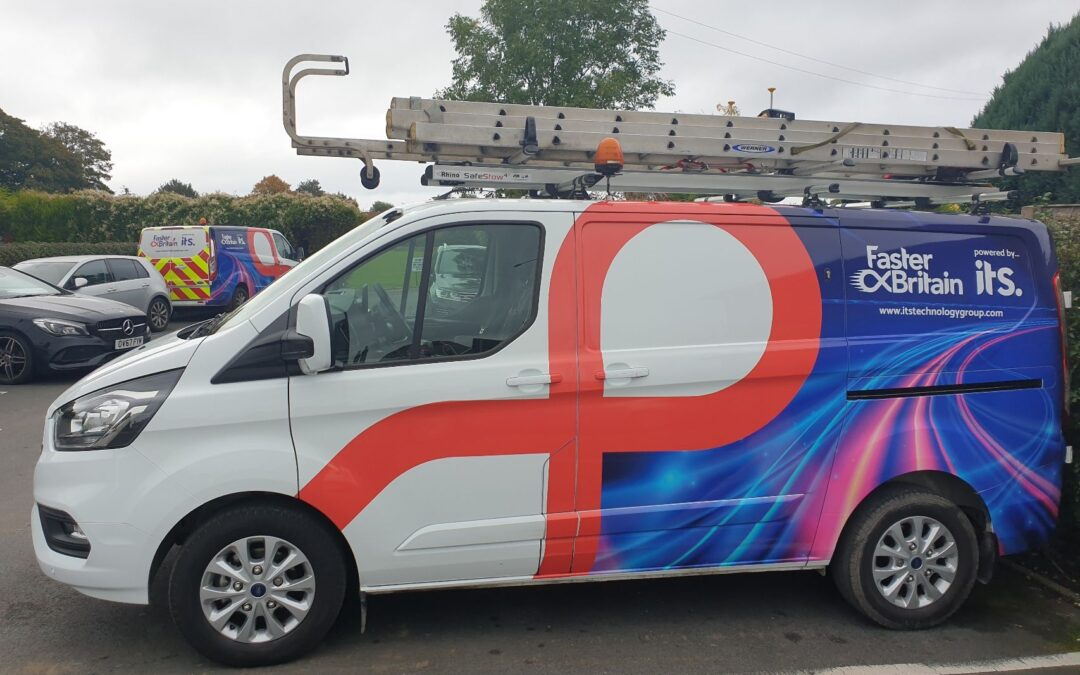
Nov 29, 2021 | Blog, Connectivity, Faster Britain, News
Nxcoms and Faster Britain Are Working Together to bring Full Fibre Internet Connections into your business premises, for a much more reliable and faster broadband service.
Back in October 2020, we announced our partnership with the Faster Britain programme, to provide ultra-fast, reliable and low cost leased line solutions to businesses in Tameside, Glossop, Blackpool and Lytham St Annes.
Now, Faster Britain is working to bring full fibre connections into customers’ premises much quicker than traditional providers, and in many more areas of the UK.
In this blog article, we’ll give you a brief overview of this new partnership between our team and Faster Britain.
Nxcoms and Faster Britain’s partnership
Faster Britain gives access to full fibre ultrafast connectivity, supporting cloud-enabled and future proof technologies.
Faster Britain was recently awarded the joint venture contract in Liverpool city region to build and manage the 212km roll out of a full fibre, gigabit-capable network of digital infrastructure. This project will provide access to fast connectivity that will help grow some of the region’s key growth sectors. It will also drive Liverpool city region to become one of the most digitally connected areas in the UK.
Areas currently served by the Faster Britain service include:
- Manchester
- Liverpool
- Tameside
- Stockport
- Chester
- Blackpool
- Chorley
- Blackburn
- Accrington
- Burnley
- Glossop
- Burton on Trent
- Newark
- Lincoln
- Scunthorpe
- Preston
- Lytham
- Wigan
- Wilmslow
- Trafford
- Birmingham
- Camden
- Lewisham
- Mayfair
- Islington
- Enfield
How does it work?
In its initial phase, Faster Britain will create a resilient fibre backhaul network. With this network, they will be connecting three transatlantic cables and major economic clusters in each of the Liverpool City Region’s six local authority areas.
Over the next two years, Faster Britain will go on to install the digital infrastructure in carriageways, footpaths and cycleways with minimised disruption to road and public transport users.
Nxcoms provides the service to you business and helps get your business connect with the very latest voice and data technology. Working with Faster Britain means we can bring full fibre connectivity to your premises much quicker than other providers. Typical installation times are 20 days rather than the industry standard 90 days. To learn more about our telecommunications services, get in touch with our team.
Key Takeaways
- Nxcoms and Faster Britain are working together again to bring fibre connections into customers’ premises much quicker than traditional providers in many areas of the UK.
- This project will provide access to fast connectivity that will help grow some of the region’s key growth sectors.
- Businesses can connect to the Faster Britain full fibre network within days rather than months.

